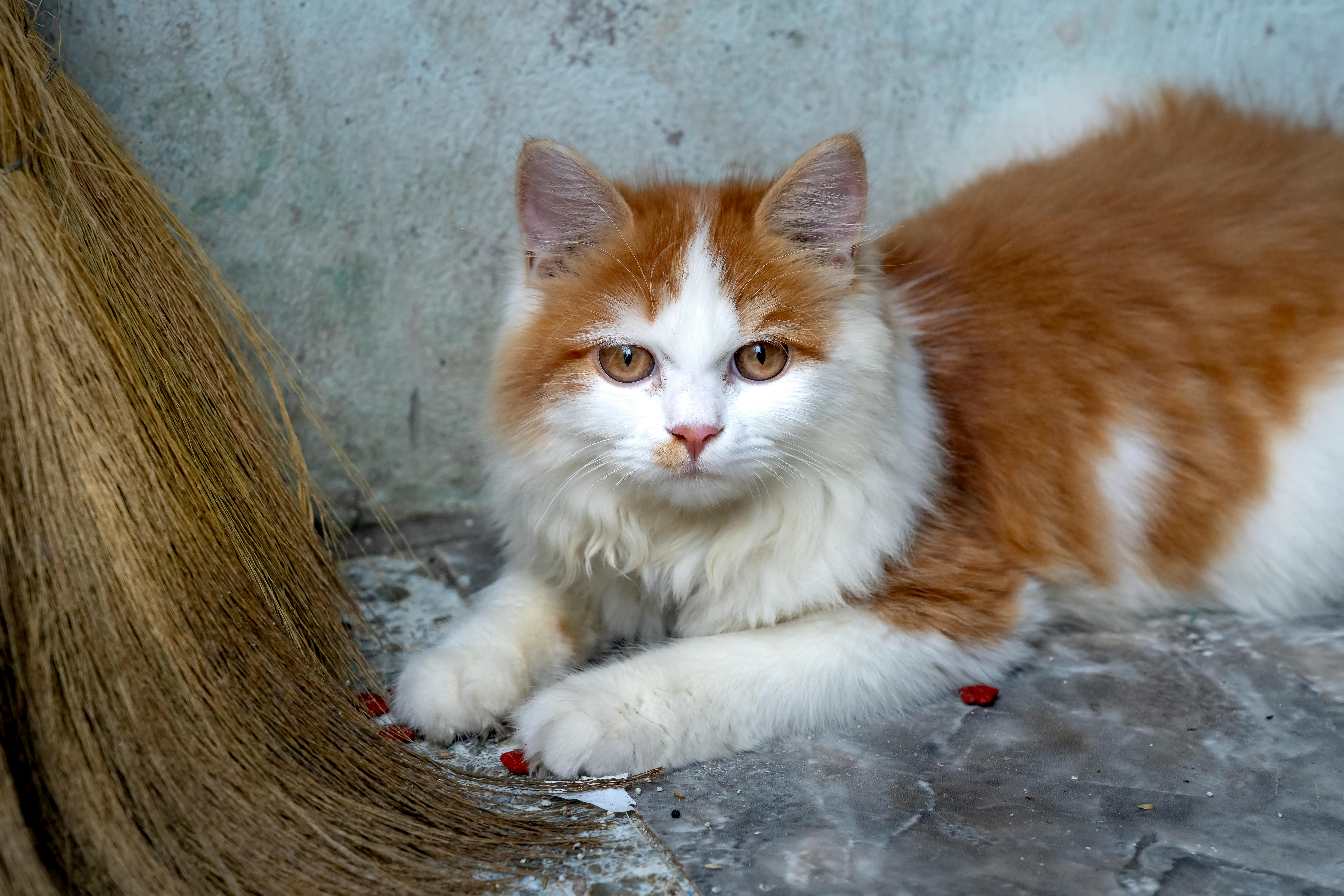 |
| Image credit: Pexels |
Have you ever walked into your home, only to find your feline friend having a delightful chewing session on your broom bristles? As peculiar as it may seem, this behavior is not uncommon among our furry companions. In this article, we'll delve into the intriguing world of cat behavior, exploring the reasons behind this seemingly odd habit and offering insights to help you understand and manage it.
Understanding Feline Behavior
The Instinctual Nature of Cats
Cats, by nature, are hunters and explorers. Their keen senses drive them to investigate their surroundings, and this includes the items you use in your daily life. Broom bristles, with their texture and scent, can be particularly appealing to a cat's inquisitive nature.
Dental Health and Chewing
Cats may chew on various objects as a way to maintain their dental health. Broom bristles, with their fibrous texture, can act as a form of natural floss, helping to keep your cat's teeth clean. However, it's crucial to ensure that your cat has access to appropriate dental toys to prevent potential damage to your household items.
Possible Explanations for Broom Bristle Chewing
Teething in Kittens
If your cat is still a kitten, the behavior of chewing on bristles may be linked to teething. Much like human babies, kittens experience discomfort and itching during the teething process. Chewing on objects can provide relief to their sore gums.
Boredom and Enrichment
Cats, known for their playful and curious nature, require mental and physical stimulation. If your cat is left alone for extended periods, they may resort to chewing on objects, such as broom bristles, as a form of entertainment. Ensuring your cat has a stimulating environment and engaging toys can help alleviate boredom-induced chewing behaviors.
How to Manage and Redirect Broom Bristle Chewing
Provide Alternative Chewing Options
To deter your cat from targeting your broom, offer alternative chewing options. Invest in cat-friendly chew toys or dental treats that cater to their natural instincts while keeping your household items safe.
Regular Veterinary Check-ups
If your cat's chewing behavior seems excessive or if you notice any signs of dental issues, it's crucial to consult with your veterinarian. Regular dental check-ups can help identify and address any underlying health issues contributing to the behavior.
Interactive Playtime
Engaging in regular interactive playtime with your cat can help burn off excess energy and prevent boredom-related chewing. Invest in interactive toys that mimic hunting behaviors, providing an outlet for your cat's natural instincts.
Conclusion
While it may initially puzzle pet owners, the act of a cat chewing on broom bristles can be attributed to a combination of instinctual behaviors, teething in kittens, and a need for mental and physical stimulation. Understanding the underlying reasons behind this behavior allows pet owners to manage and redirect it effectively, ensuring a harmonious coexistence between feline companions and household items.
@nolacrazycatlady #catsoncatnip #catnip #becauseigot #blackcats #blackcatsoftiktok ♬ Pink Panther Intro - Henry Mancini







0 Comments